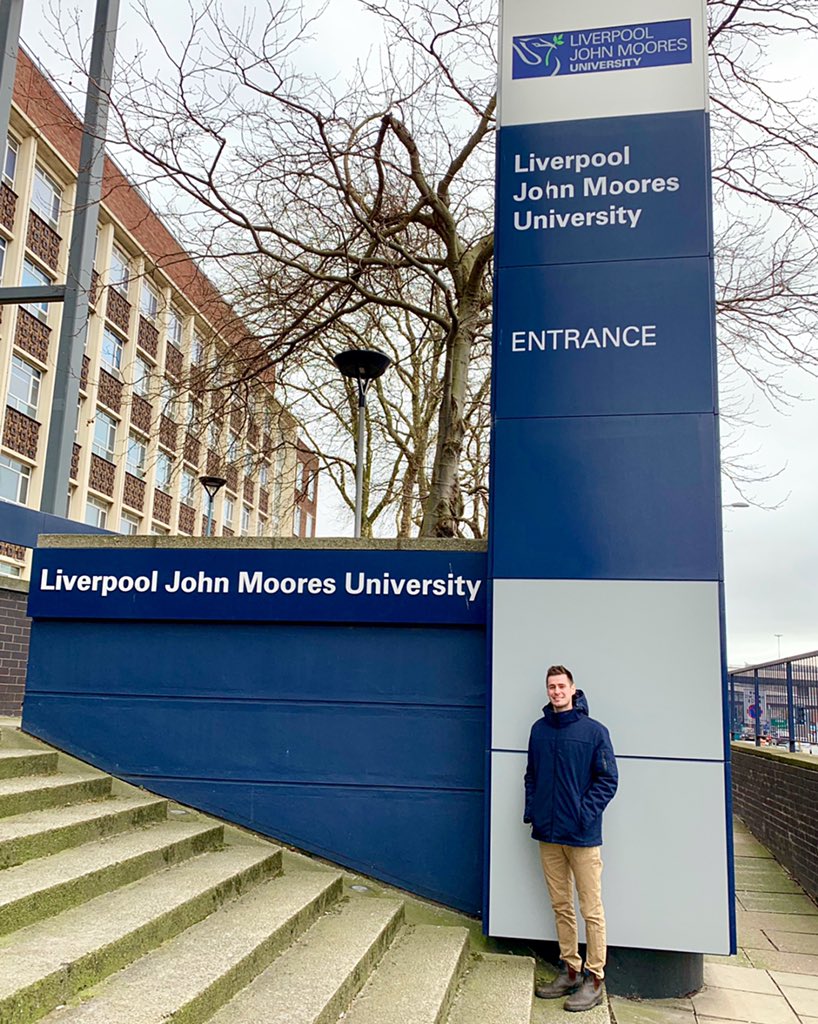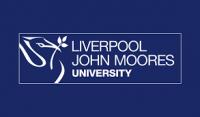MA Art in Science
This unique Art in Science programme provides exciting opportunities for artists and scientists to collaborate and explore the boundaries of art and science.
- Enrol on an innovative programme, collaboratively developed with academic experts across a number of disciplines that include: Art and Design, Sports Science, Public Health, Evolutionary Anthropology, Astrophysics, Technology and Museum Practice
- Enjoy access to a number of different established research centres across Liverpool John Moores University
- Explore the relationship between art and science, including the historical and theoretical connections between art and science as cultures and practices, and understand how these ideas translate into contemporary experiences
- Develop real world skills on a programme unique to the UK and decide which areas of art and science you wish to investigate as you progress through the programme
- Explore art-science project briefs in unexpected forms
- Take advantage of the generous Michael Pugh Thomas and Julia Carter Preston Legacy £1000 scholarships offered to postgraduate applicants
Art and science are often seen as two different entities with very separate ideas of what constitutes research. The MA Art in Science programme at Liverpool School of Art and Design aims to bring together artists and scientists to explore collaborative approaches in art and science.
Increasingly, collaborations between artists and scientists are a feature of our cultural landscape. Traditionally this relationship has been perceived as art in the service of science, whereby artists use their skills to visually interpret or communicate complex scientific ideas, objects or forms. However, a hybrid form of research has emerged over the last 30 years where artists and scientists are interested in the creative possibilities and speculative futures of the intersection of these two cultures.
This programme provides an opportunity for collaborations across the visual arts and the world of scientific enquiry, and encourages transdisciplinary creativity based on the skills that you bring with you to the programme and those you develop during your research experience.
Intakes
- Sep
Application Processing Time in Days: 20
Application Process
Minimum English Language Requirements
| English Level Description | IELTS (1.0 -9.0) | TOEFL IBT (0-120) | TOEFL CBT (0-300) | PTE (10-90) | |
|---|---|---|---|---|---|
| Expert | 9 | 120 | 297-300 | 86-90 | |
| Very Good | 8.5 | 115-119 | 280-293 | 83-86 | |
| Very Good | 8 | 110-114 | 270-280 | 79-83 | |
| Good | 7.5 | 102-109 | 253-267 | 73-79 | |
| Good | 7 | 94-101 | 240-253 | 65-73 | |
| Competent | 6.5 | 79-93 | 213-233 | 58-65 | |
| Competent | 6 | 60-78 | 170-210 | 50-58 | |
| Modest | 5.5 | 46-59 | 133-210 | 43-50 | |
| Modest | 5 | 35-45 | 107-133 | 36-43 | |
| Limited | 4 | 32-34 | 97-103 | 30-36 | |
| Extremely Limited | < 4 | < 31 | < 93 | < 30 |
Job Opportunity Potential
Careers support if you choose to study at LJMU
In this section we run through the many ways we will equip you for today's job market.
You’ll graduate with practical experience
When looking for graduate jobs, experience is invaluable. It’s something lots of graduates lack, so our degrees offer opportunities for work-related learning, which means that when you graduate from Liverpool John Moores University, you don’t just leave with a good degree, you can also leave with practical experience.
You'll improve your job prospects with our careers support
Our careers service can help improve your job prospects when you graduate.
The importance of industry experience
To make sure that you have an up-to-date and commercially relevant degree, you will be taught by academics who are involved within their industry. We also invite industry leaders to give guest lectures to our students.
You can make use of our fantastic links with employers
We have strong links with big-name employers both locally and nationally – from Tate Liverpool to Barclays – which means that we can provide you with valuable work placements, paid internships and industry master classes.
Careers Zones
The Careers Team operate out of Faculty-based Careers Zones. As well as Careers Advisers, you can also meet with an Employability Adviser in the Zones, who can offer support with job applications, personal statements, CVs, interviews, postgraduate study applications, placement advice and much more.
You can also pick up a range of careers information and resources in the Zones, including our annual, school-specific Career Planning Guides.
CareerSmart
All students in their first year of study will have an opportunity to engage with the CareerSmart programme as an integral part of a core module of study. Once you have completed this, a wide range of other career-related provision and services will be available to support your development throughout your studies.
PSW Opportunity
2 years of PSW available after Degree course
Admission Requirement / Eligibility Criteria
You must have a degree awarded by a university that is officially recognised by Ecctis.
Holders of a Bachelor’s degree with pass rate of 53% will be considered for direct admission to Postgraduate courses.
You should have a minimum of IELTS 6.0 Overall with 5.5 in each component score or we may accept equivalent qualifications.
We will accept the following Standard XII English state boards with a score of 70% or above as an alternative to IELTS:
CBSE
CISCE (ISC)
A UKVI approve SELT is a compulsory requirement for students applying from the regions of Gujarat, Haryana, Punjab, Rajasthan, Uttar Pradesh - even if the students have studied their Standard XII from CBSE/ISCE Boards
Qualification
Grade required (Minimum standards – courses may vary)
IELTS Academic (register)
6.0 Overall with 5.5 in each component
TOEFL IB (register)
78 Overall with R18, W17, L17, S20
Cambridge CPE (register)
Grade C
Cambridge CAE (register)
Grade C or Minimum of 169 with no skill less than 162
Trinity Integrated Skills in English (ISE) Level IV (find out more information)
Pass in all Skills
Trinity Integrated Skills in English (ISE) Level III (find out more information)
Pass in all Skills
Language Cert (register)
ESOL (IELTS 6.0 equivalent) B2 Pass – no component below 33/50
Or
ESOL (IELTS 6.5 equivalent) B2 Pass – no component below 33/50
NCUK English Language Test (visit NCUK to register)
6.0
Oxford Test of English (OTE)
120 Overall with 111 in each component (equivalent to IELTS 6.0, 5.5 for each component)
Oxford Test of English (OTE)
130 Overall with 111 in each component (equivalent to IELTS 6.5, 5.5 for each component)
Pearson PTE Academic UKVI
61 (Minimum of 59 in each component)
Pearson Versant English Placement Test
62 (Minimum of 57 in each component)
PSI Service UKVI Skills for English test
B2 pass in all 4 components (equivalent to IELTS 6.0, 5.5 for each component)
Online English Language Level Test (ELLT)* (find out more information)
ELLT B2+ Overall, Reading 23, Listening 28, Writing 5, Speaking 5 (for courses that require IELTS 6.0 with 5.5 in each component)
Or
ELLT C1 Overall, Reading 23, Listening 28, Writing 5, Speaking 5 (for courses that require IELTS 6.5 with 5.5 in each component)
- Course Type: Full Time
- Course Level: Masters/PG Degree
- Duration: 01 Year
-
Total Tuition Fee:
16100 GBP
Annual Cost of Living: 9207 GBP
Application Fee: N/A
Similar Programs
- MSc Wildlife Conservation Technology at Liverpool John Moores University (LJMU)
- MSc Sport Psychology at Liverpool John Moores University (LJMU)
- MPhil Postgraduate research opportunities in Sport and Exercise Science at Liverpool John Moores University (LJMU)
- MPhil Postgraduate research opportunities in Public Health at Liverpool John Moores University (LJMU)
- MPhil Postgraduate research opportunities in Psychology at Liverpool John Moores University (LJMU)
- MPhil Postgraduate research opportunities in Pharmacy and Biomolecular Sciences at Liverpool John Moores University (LJMU)

